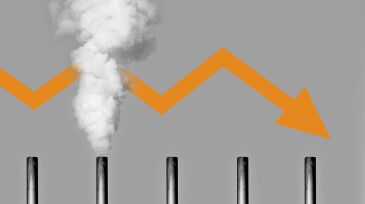Sustainability
The two companies said they will evaluate the possibility of a joint venture to develop a direct air capture hub in South Texas, with XRG considering investing up to $500 million.
The plant at Heidelberg Materials’ cement facility in Brevik, Norway, has captured its first 1,000 metric tons of carbon dioxide.
The times are changing and so are our industry’s prospects, as hydrocarbons are now recognized as cardinal to affordable energy security for the conceivable future. But, in avoidance of suspense, the answer to the headline question is “absolutely.” Here we look at the rationale why.
-
The authors of this paper discuss an integrated cloud-based work flow aimed at evaluating the cost-effectiveness of adopting geothermal production in low- to medium-enthalpy systems.
-
The power from the first turbine to come online will be used to help run the Gullfaks A platform in the North Sea. Seven of the 11 turbines in the field are expected to begin producing power within a year.
-
This research addresses the bottlenecks experienced in supply-chain management (SCM) in an African hydrocarbon company. These bottlenecks slow down processes and make the procedures tedious, leading to operational inefficiencies. This paper discusses the security of the SCM data and the overall automation of the procurement value chain, providing transparency to the s…
-
Divesting from fossil fuel assets makes a big statement. Its impact, however, is murkier. Selling off an asset requires someone else to buy it, which, in the case of fossil fuels, can mean breathing new capital into the exact assets companies are trying to choke. But there’s another approach: running those assets into the ground.
-
H2 Industries says it has developed a way to convert gas that normally would be flared into clean hydrogen and solid carbon at the oil field.
-
This paper provides an overview of strategies, approaches, technologies, and tools that enable companies to prioritize social-good, natural processes and restoration of natural resources as part of business and operations.
-
Investors say they value a company’s data on sustainability almost as much as they value its financial data. They need to be able to trust it as much, too.
-
Carbon capture and storage continues to grow worldwide, according to a report released by the Global CCS Institute. The report reveals a record high of 196 commercial CCS facilities in the project pipeline, including 30 projects in operation, 11 under construction, and 153 in development.
-
The model of “learn at school and do at work” is outdated and must keep up with the changing environment of the Industrial Revolution 4.0. Petroleum engineering curricula, therefore, must also change accordingly. It is time to examine the core curricula being taught at petroleum schools so that long-term sustainability can be established.
-
The need to increase management and boardroom commitment to change will never go away, but it needs to be matched with a focus on directing the commitment that exists into the most effective areas, with actions that deliver real impact. In particular, there are four priorities business should pursue.













